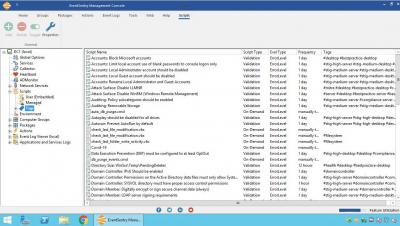Security | Threat Detection | Cyberattacks | DevSecOps | Compliance
Security
How Netskope NewEdge Takes SD-WAN to the Next Level
With Gartner releasing its latest Magic Quadrant for WAN Edge Infrastructure earlier this month, it seemed an appropriate time to explore the intersection of SD-WAN and SASE. Both of these technological approaches hold great promise and are large, billion-dollar markets, sharing the common goal of connecting users to the data and applications critical to doing their job. The two technologies demonstrate the increasing overlap and tightening linkage between networking and security investments.
Over one million WordPress sites receive forced update to security plugin after severe vulnerability discovered
Loginizer, a popular plugin for protecting WordPress blogs from brute force attacks, has been found to contain its own severe vulnerabilities that could be exploited by hackers. The flaw, discovered by vulnerability researcher Slavco Mihajloski, opened up opportunities for cybercriminals to completely compromise WordPress sites. The flaw can be exploited if a user attempts to log into a Loginizer-protected website with a carefully-crafted username.
NSA list: what you need to know about the top vulnerabilities currently targeted by Chinese hackers Part 1
This week NSA published a list of the top 25 vulnerabilities that Chinese hackers are actively exploiting, and unsurprisingly the list included some of the most prominent CVEs that we’ve covered in our previous risk based vulnerability management blogs.
ContainerDrip - Another Example of Why HTTP Basic Authentication is Flawed
The latest exploit in the series of issues with cloud infrastructure software is called “ContainerDrip” (CVE-2020-15157)and in some cases it can cause you to leak your registry secrets to an attacker. The attack is actually a kind of secret or password leak using request forgery. Your client unintentionally makes an HTTP API request to the attacker’s endpoint where this request contains the container image registry secret.
The evolution of bots: generations 1, 2 & 3
Bots are evolving dramatically and becoming more sophisticated and launching ever more complex and targeted attacks at ever increasing rates. This makes detecting bots more important than ever but also more difficult than ever. Bots of the more recent generations are harder to identify without expert bot detection tooling. These bots could put businesses at risk of exposure to threats such as scraping, carding, and credential stuffing.
Track open source security exposure with Snyk and Datadog
Using open source code makes it easier to build applications, but the freely available nature of open source code introduces the risk of pulling potential security vulnerabilities into your environment. Knowing whether or not customers are actually accessing the vulnerable parts of your application is key to triaging security threats without spending hours fixing an issue that doesn’t affect end users.
ClearScore selects Netacea for bot protection
Internet of Things toys are fun but raise privacy and socio-political concerns
An estimated 38 billion devices are connected to the internet this year, highlighting the fact that the Internet of Things (IoT) is not a farfetched futuristic concept, but the reality for most of the modern world. Many of these connected devices are toys that children enjoy, but no matter how fun they may be, challenges have come to the surface due to privacy concerns and socio-political issues pertaining to gender-neutral toys.










